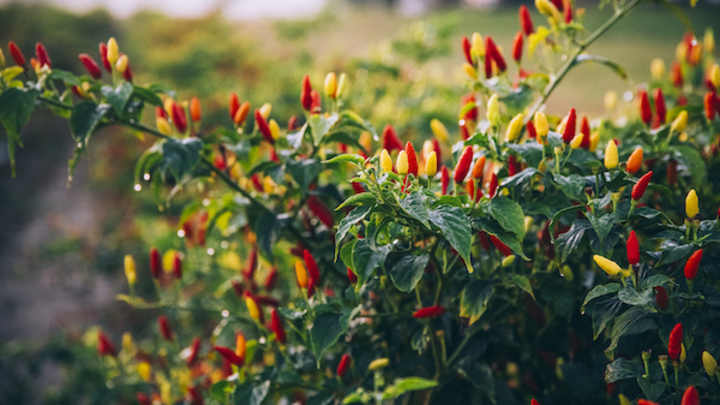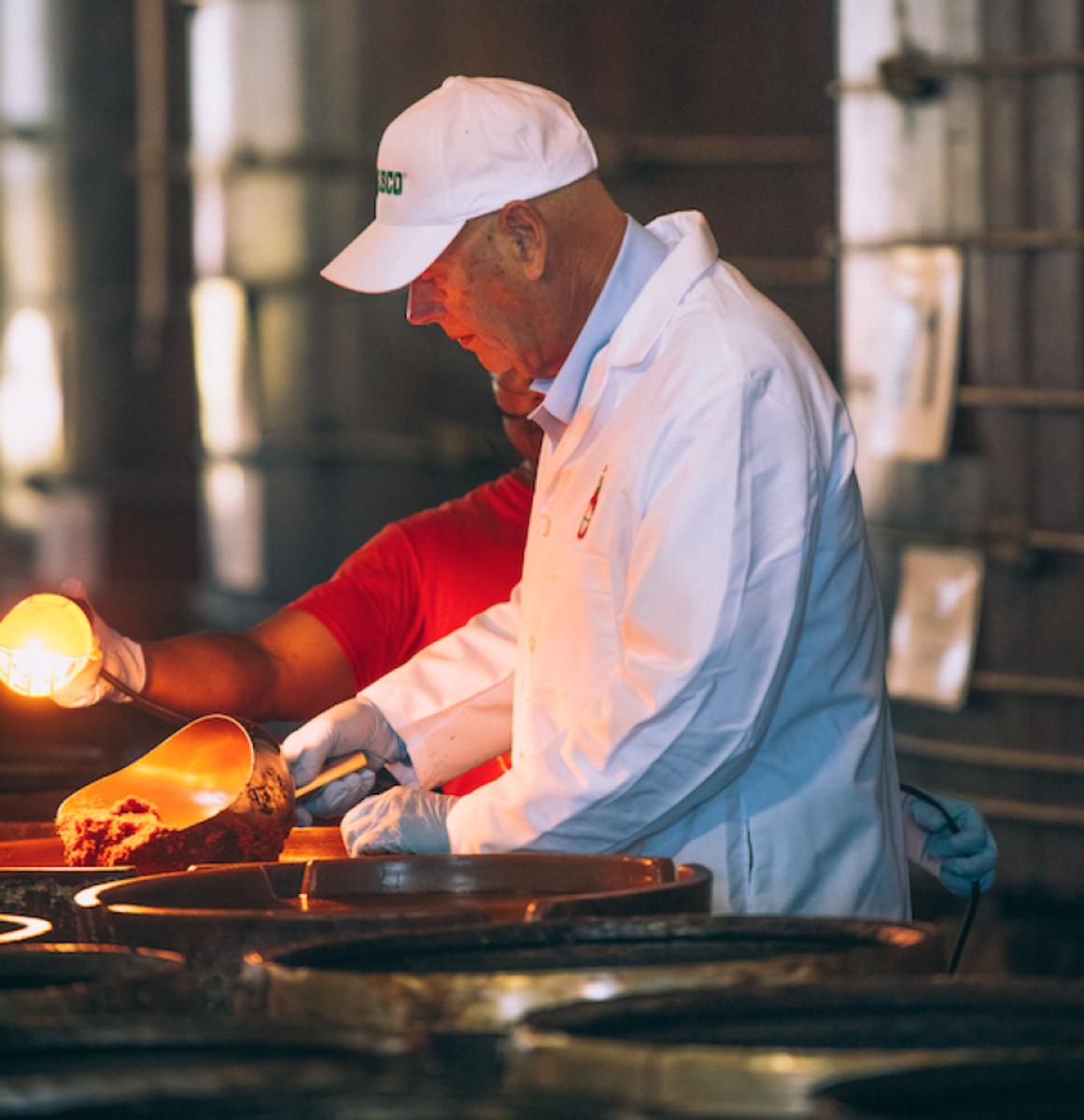Tabasco savors hot history

In 1893, George Whitfield Chadwick, who bears a reasonable claim to being the first accomplished U.S. classical music composer, took on a commission to write Tabasco: a Burlesque Opera, in which the hot sauce made by the McIlhenny Co. plays a pivotal role.
The comic opera, in a Gilbert & Sullivan vein, became popular enough in 1894 to play in New York for 40 performances and tour close to 50 cities around the U.S. before it faded from view and vanished. The score was discovered in an attic and resurrected by conductor Paul Mauffray, who mounted a new production last year with the New Orleans Opera.
It was a propitious confluence of occasions — the 300th anniversary of New Orleans, the 150th anniversary of the McIlhenny Co., (established in 1868), and the 75th anniversary of the opera company.

McIlhenny Co. CEO Tony Simmons has been tasting the mash most mornings since 2013. [Photo: McIlhenny Co.]
Tony Simmons, the McIlhenny CEO until his retirement this month, said, “Paul came to me about five years ago and said he had the libretto and the music, though some of the music had to be reconstructed. We were happy to sponsor the production; we felt it would be a wonderful way to celebrate our 150th anniversary. And it was.”
The company has plenty to celebrate anyway.
If any hot pepper sauce is iconic, it’s the trademarked Tabasco, first produced by Simmons’ great great grandfather Edmund McIlhenny on Avery Island, La. The company has been in the same location ever since, still privately and family-owned. As such the company is stingy with figures, but Simmons said the factory has the capacity to churn out 700,000 bottles a day.
"About 40 percent of our production is sold outside the U.S. in 197 countries — just about every country in the world save for the few there’s no way to ship to — North Korea, Iran, Somalia.”
The company grows peppers for seeds on Avery Island and ships those off to Latin America and Africa to be grown. Then, said Simmons, “We grind the peppers up into a mash which is is brought back, salted, put into old bourbon barrels and aged up to three years before we make Tabasco with it. It’s a type of fermentation but not an alcoholic one. Once the barrels are opened I inspect the mash. Then we mix it with vinegar, stir it for up to 28 days, strain off most of the solids and bottle it. That’s it. We don’t even cook it.”
Simmons started tasting the mash every morning when he took over as CEO in 2013. That’s a lot of hot sauce.
“And the mash is about about 10 times as hot as the sauce. It’s hot,” Simmons said. The regular red Tabasco is between 2,500 and 5,000 Scoville heat units. But the company makes all kinds of sauces — a habanero sauce heats up toward 7,000 Scoville units and a newish one called Scorpion blows the lid off at 50,000 Scoville units.
Is that edible?
“Oh, yeah,” Simmons said. “There’s a pretty good market for it.”
Simmons will be giving his gastrointestinal tract a rest in retirement, teeing it up more often at the Le Triomphe Golf and Country Club in Broussard (home of the Web.com Tour's Chitimacha Louisiana Open), and at Grandfather Golf and Country Club near his mountain home in Linville, N.C. He’s handing over the tasting ladle and company reins to his cousin, Harold Osborn.
The company had a clothing line for awhile and sponsored a few pros on the PGA Tour, notably Woody Austin, Kirk Triplett and Kenny Perry.
“The wilder the shirt, the more Woody liked it," Simmons said. "And we were fortunate to have caught Kenny while he was on his way up.” While he was hot, so to speak.
Besides the pepper farm, there’s a grand company museum on Avery Island, a bird sanctuary that is a major migratory stop for Snowy Egrets, and the Jungle Gardens, a 170-acre wildlife sanctuary and semi-tropical gardens.
Some 120,000 annual visitors can test their own Scoville hardiness with the varieties of hot sauce samples in the gift shop. And naturally they can cart away bottles large and small, including the miniature bottles that McIlhenny pumps out by the millions — 30 million last year.
"The mini bottles were first produced by the company back in 1894, to hand out as samples at the end of performances of the opera. And we’ve been making ‘em ever since,” Simmons said.
Tom Bedell is, as best that he can discern, the sole member of both the Golf Writers Association of America and the North American Guild of Beer Writers. He writes, and drinks, in Williamsville, Vermont.
Email:bedell@svcable.net
Instagram:@tombedell
Twitter:@tombedell
